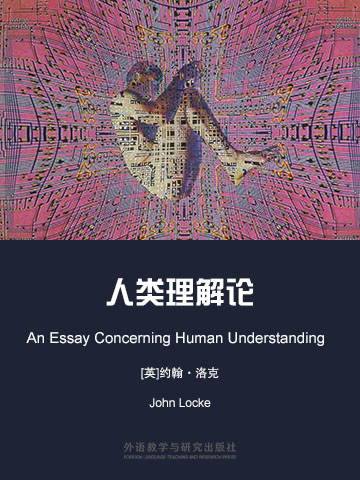人心就像一张白纸,上面什么字迹也没有。(约翰•洛克)
《人性理解论》是英国经验论哲学的代表作。洛克在本书的一开头就批判了笛卡儿的“天赋观念”和莱布尼兹的“天赋实践原则”、提出“人心就像一张白纸,上面什么字迹也没有”、“人类一切知识的泉源就是经验”。在书中,洛克提出了第一性的质与第二性的质、简单观念与复杂观念的学说,论述了知识的本性、形成、等级和范围等问题。洛克把广延性、运动、不可入性等称作物的第一性的质。把颜色、声音等称作第二性的质。它们作用于人的感官,产生相应的简单感觉和简单观念,然后再由这些简单观念形成复杂观念,由此产生知识。
An Essay Concerning Human Understanding is a work by John Locke concerning the foundation of human knowledge and understanding. He describes the mind at birth as a blank slate filled later through experience. The essay was one of the principal sources of empiricism in modern philosophy, and influenced many enlightenment philosophers. Book I of the Essay is Locke's attempt to refute the rationalist notion of innate ideas. Book II sets out Locke's theory of ideas, including his distinction between passively acquired simple ideas, such as "red," "sweet," "round," etc., and actively built complex ideas, such as numbers, causes and effects, abstract ideas, ideas of substances, identity, and diversity. Book III is concerned with language, and Book IV with knowledge, including intuition, mathematics, moral philosophy, natural philosophy ("science"), faith, and opinion.
- INTRODUCTION
- BOOK I
- BOOK II
- BOOK III
- BOOK IV
- 书评 写书评
- 笔记
-
书评加载中...























 京公网安备 11010802032529号
京公网安备 11010802032529号
笔记加载中...